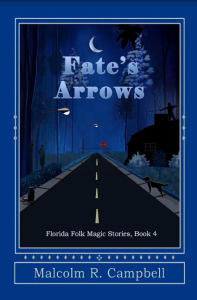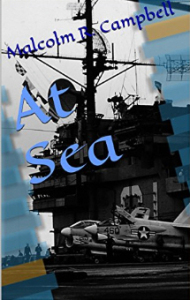Malcolm R. Campbell's Blog, page 72
July 24, 2021
Rare steak? I’m sending it back
 Perfectly cooked? Ha! It hasn’t been cooked.
Perfectly cooked? Ha! It hasn’t been cooked.
When I was a kid, everyday people ordered steaks medium to medium well. Now, that’s considered gauche, according to the food network. Just ask the bosses on Masterchef, Hell’s Kitchen, and Chopped. When they check the steak and find it to be nearly raw, they say, “Perfectly cooked.”
In a pig’s eye.
I could tell Chef Ramsay that the USDA says the safe cooking temperature for streak is 145˚. Basically, that computes to medium. Apparently the food network chefs have been brainwashed–but to what end?
I think it’s a “beautiful people” thing. Just look at how the people are dressed who come to a Hell’s Kitchen dinner. Runway ready, I would say. I haven’t seen people dressed like that since the last time I watched the Oscars. And that’s been a while. But they look less attractive with blood dripping from their mouths, pooling on their plates, and spattering across the tablecloths like a crime scene. That’s one hell of a fashion statement.
I feel like I should print out this chart wheneve I go to a steak house:

I doubt it would help. My simple rule of thumb is that if the color of the steak matches the color of my red wine, the steak is undercooked. I’ve had multiple arguments with servers about the doneness of my steaks, but then I didn’t have the chart with me. Usually, couple of thugs with meat cleavers come out of the kitchen and say, “Something wrong with your food, you uncultured oaf.”
“It’s fine,” I say, before putting a hex on the thugs.
Then the chef comes out in full splendour and says he has his standards but the customer is always right. Then, and only then, does my steak come back perfectly cooked. (They probably popped it into a microwave.)
Frankly, it’s easier to order something other than beef and avoid the arguments.
-Malcolm
Malcolm R. Campbell
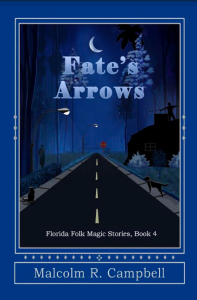 Publisher: Thomas-Jacob Publishing
Publisher: Thomas-Jacob Publishing
My characters don’t eat raw meat.
July 23, 2021
Review: ‘Camino Winds’ by John Grisham
Camino Winds brings back many of the characters from Camino Island, a novel the New York Times aptly decribed as “a delightfully lighthearted caper.” Camino Winds begins with wind, the monster hurricane Leo that takes aim at the Florida Island with deadly intentions and mind-numbing accuracy. In her blurb, author Delia Owens (Where the Crawdads Sing) calls this second book in the series a “wild but smart caper.”
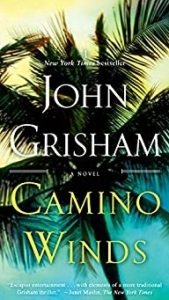 The novel is easy to read but the most exciting part of the caper is provided by the hurricane, and this is where we find the book’s most effective writing. A man is killed during the story, purportedly by falling tree limbs, but bookstore owner Bruce Cable of Bay Books doesn’t think so. The local police don’t seem interested, so the caper aspect of the novel begins when Bruce and his friends start trying to find out what really happened.
The novel is easy to read but the most exciting part of the caper is provided by the hurricane, and this is where we find the book’s most effective writing. A man is killed during the story, purportedly by falling tree limbs, but bookstore owner Bruce Cable of Bay Books doesn’t think so. The local police don’t seem interested, so the caper aspect of the novel begins when Bruce and his friends start trying to find out what really happened.
They begin by disturbing the crime scene, borrowing the dead man’s car, and appropriating the food and liquor in his kitchen that will dertainly go bad if left for any forensic techs who might one day show up. The dead man, an author named Nelson Kerr–among those who hung out at Bay Books–won’t miss the food and probably wouldn’t begrudge the amateur sleuths a great meal and all the high-priced drink they can handle, which turns out not to be a lot.
Kerr as apparently writing a novel about something that somebody didn’t like so, probably–the amateur sleuths speculate–the killer was mixed up in the pièce de ré·sis·tance crime Kerr plans to thinly diguise as fiction in his new thriller. If so, they no doubt wanted to stop him before (a) he finished the book, or (b) the book get to a publisher if he did finish it.
Bruce, et. al. have some good ideas, the kind that just might get them killed. If they (the sleuths) were black ops types, they dould take the next step and go after the bad guys with enough gear that woud make Tom Clancy and Clive Cussler exited. But they aren’t, so they can’t, and they don’t. For the reader, this means a lot of time is spent listening to the characters’ pondering which, fortunately, is punctuated with a few laughs, scares, and dicoveries along the way.
They mean well. They’re likeable. And they keep pushing on whoever they can influence until heavy hitters become involved and the crime is solved. Until then, nothing much happens. When the pros show up, a considerable amount of time is spent describing how the bad guys scammed the government out of a lot of money while hurting everyday people. Yes, we suspect this kind of thing is true. But how they (the bad guys) do what they do takes the focus of the story simultaneously closer to its climax and farther away from the main characters.
This is an unsatisfying plot solution. The characters who begin the caper really need to end the caper. If you read every Grisham novel, you’ll nonetheless have fun reading this one. If you don’t, you won’t.
–Malcolm
Publisher: Thomas-Jacob Publishing
July 21, 2021
Book jacket descriptions aren’t that great
When you read enough book jacket copy—that’s the stuff on the back of the book or inside the jacket flap, telling you what to expect within—you start to notice strange patterns. Books from one of the big four publishing houses will have a line or two promising that the latest in literary fiction is a sober look at our current dilemma/modern age/social media addiction/technological approach to dating. If the copywriter is feeling bold, maybe they’ll let us know that the writer is a “dazzling new voice,” or that the release of this debut novel is “heralding a brave new voice in fiction.” From there, a frustratingly vague description of the plot usually contains a foreboding line letting us know the protagonist needs to go on a journey to another country to find herself, or that a man will try to save his marriage or family. End with a reminder that this book is very important and/or brilliant. Just like every other book.
Source: Book jacket descriptions for titles like Luster and The Silence are terrible.
Book jacket copy is so bad, that I’ve come home from the store with a greatly anticipated new book that it turns out I’ve already read. Or, I waste time at the store trying to figure out whether–if I haven’t read the book–is it something I want to read. It’s hard to know when the jacket copy makes most books sound like the same book.
This is what happens when droids are allowed to write the jacket copy.
–Malcolm
July 20, 2021
Those old maligned Christmas letters
The families who didn’t send Christmas letters poked fun at the people who did send Christmas letters.
One joke was that the Christmas letters never told the straight skinny–as we called the real truth in the navy–but presented a fantasy version of the family’s activities. Jail time, divorces, bad grades on report cards, and acne never made it into th Christmas letter. It was all good news, creating world peace, saving people from poverty, and receiving various honors and awards.
My parents added new people to their Christmas letter list at every stop in the road of my father’s advancement up through the faculty ranks. Every new college added people we would know the rest of our lives through cards and letters even though we knew them on a day-to-day basis for a few months or a year.
When my parents passed away, I sent their last letter letting everyone know they were gone and thereafter received cards and letters every year from people I hadn’t seen for half a lifetime.
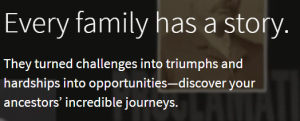 In later years, the family Christmas leters–collected in a three-ring binder–became my memory. If I couldn’t remember what year we visted Niagara Falls or Fort Ticonderoga or Mammoth Cave, I’d pull out the Christma letter diary and look it up. It’s been a handy resource. On the curiosity side, since my folks put their current address in the letters, I’ve been able to use Google Maps and look up all the houses where we lived back into the 1940s. They’re still there. There have been a few times, though, when I wanted to write the current owners and say, “You really screwed up the front yard.”
In later years, the family Christmas leters–collected in a three-ring binder–became my memory. If I couldn’t remember what year we visted Niagara Falls or Fort Ticonderoga or Mammoth Cave, I’d pull out the Christma letter diary and look it up. It’s been a handy resource. On the curiosity side, since my folks put their current address in the letters, I’ve been able to use Google Maps and look up all the houses where we lived back into the 1940s. They’re still there. There have been a few times, though, when I wanted to write the current owners and say, “You really screwed up the front yard.”
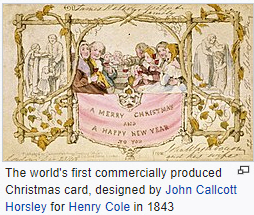 I don’t send out Christmas letters. But I do send snail mail cards. It’s a way of staying in touch, old fashioned as it may be. A few friends still send us Christmas letters, some interesting, some tedious. As people get older, they often spend a lot of time traveling: so what we get really isn’t a letter, but an intinerary. We skim those because we really don’t need to know the details of every roadtrip.
I don’t send out Christmas letters. But I do send snail mail cards. It’s a way of staying in touch, old fashioned as it may be. A few friends still send us Christmas letters, some interesting, some tedious. As people get older, they often spend a lot of time traveling: so what we get really isn’t a letter, but an intinerary. We skim those because we really don’t need to know the details of every roadtrip.
Frankly, it would ramp up our interest if letters said stuff like, “Laura spent more time this year in county for turning tricks on Tenderloin Street” and “Bob got caught with his hand in the till at work and had to move to a new church” and “Sam’s had syphilis most of the year again while Megan is hanging out with a bad crowd.”
I’ve been tempted to say such things, but my wife thought it was a bad idea. Probably so.
I often wonder if people under 30 these days care about family continuity whether it’s coming from Ancestry.com or saving old letters. It bothers me to think more and more people don’t care who their grandparents were/are or where they lived. All of that past family history seems to play a role in creating the people we’ve become–even if we joke about it by saying, “Acccording to the Christmas letter of 1983. . .”
–Malcolm
Malcolm R. Campbell
 Publisher: Thomas-Jacob Publishing
Publisher: Thomas-Jacob Publishing
July 19, 2021
OMG, I still use wall calendars
A Facebook meme lists a bunch of stuff that’s supposedly out of date and asks how many of us use any of these items? I forget the list, but it probably included washboards, spring wagons, Springfield M1861 rifled muskets, and wall calendars.
So, you tell me, what’s old fashioned about wall calendars? You can see the entire month at a glance and you get a pretty picture to go with it. Of course, my PC and my cell phone tell me today’s date. Yes, I can display the entire month, but–and maybe this is just me–it’s a lot easier to glance at the wall. Plus, I don’t know where my cell phone is most of the time, while I can usually find the wall.
 If you’ve ever been a member of a conservation organization, it’s not like you have to pay for the calendar. If you’re a member now, the calendar shows up every year. If you’re not a member, multiple calendars show up every fall to shame you into joining up again as a way of saying “thank you” for the nice calendar and the accompanying return-adress stickers.
If you’ve ever been a member of a conservation organization, it’s not like you have to pay for the calendar. If you’re a member now, the calendar shows up every year. If you’re not a member, multiple calendars show up every fall to shame you into joining up again as a way of saying “thank you” for the nice calendar and the accompanying return-adress stickers.
My office usually has a Montana Historical Society calendar in it. Lots of cool stuff from the archives. Sometimes scenics. Sometimes special themes like historic railroads. The kitchen wall calendar usually has something colorful and/or scenic. When my brother and his wifew visited Hawai’i, we saw lush tropical scenes in the kitchen. When they traveled to Scotland, we had great pictures of the old country. Last year, nobody went anywhere so we have a cat calendar.
If you visit a national park or some other cool location, you’ll probably spend $1000000 in the gift shop buying shot glasses, coffee mugs, coasters, and tee shirts. Might as well pick up a wall calendar to beautify your kitchen or, at least, your garage.
I guess I could tape my cell phone to the wall with a calendar displayed on it (the phone). I would at least know where the phone is, but the calendar would be too small to read from across the room. And let’s face it, you could be almost anywhere in the room when somebody asks, “Hey, is July 23 on a Friday?” I can answer that because my wall calendar is 1.5 feet away.
Sure, I suppose it’s modern and enlightened never to use wall calendars or spring wagons these days. That view comes mostly from peer pressure. That is to say, people will laugh at you if you ride a spring wagon to work or if they see a wall calendar in your kitchen. The point is not to care.
There might be other points, but I don’t know what they are.
–Malcolm
Publisher: Thomas-Jacob Publishing
Nook, Kindle, paperpack, hard cover, and audiobook.
July 17, 2021
If eBay had been around when we were kids, we’d be rich today
I used to buy and sell a lot of stuff on eBay, old books, postcards, brochures, old advertisements from old magazines–ephemera, was the technical term. But no toys. There’s a reasonn why. We were destructive kids.
Tin soldiers bit the dust on the screen porch when we set up forts at each end, filled them with soldiers, and then used marbles to wipe them out. A logroller was like an a-bomb.
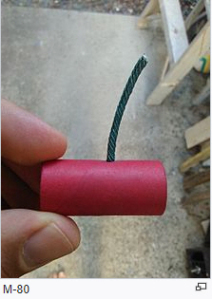 Old metal airplanes such as the kids’ versions to B-17s and B-29s. If you filled them with pine straw, lit the pine straw on fire, and ran through the pack yard holding the plane it’s wingtip, the result was pretty exciting. It looked wilder when the plane kit a tree.
Old metal airplanes such as the kids’ versions to B-17s and B-29s. If you filled them with pine straw, lit the pine straw on fire, and ran through the pack yard holding the plane it’s wingtip, the result was pretty exciting. It looked wilder when the plane kit a tree.
Plastic toys tended to leave the world via an “unfortunate explosion.” We weren’t allowed to play with C-4, but on trips we stocked up on M-80s and cherry bombs at places across the border such as Crazy Eddies’. You guessed it. These were thrown at old toys.
I assure you, after watching th Toy Story movies we all feel quite a bit of sorrow for doing this. We also feel financial sorrow after seeing years later that the toys we destroyed would one day be worth big bucks.
I’m not sure why, but we just enoyed playing with fire and explosives. We proved, I guess, that you can play with fire and not get burnt–physically, that is. But the money we could have made if we’d put the toys away in their original boxes at the end of the day.
In our defense, I should mention that a fair number of these toys (the ones not destroyed) were donated to Toys for Tots where, years later, other kinds would probably destroy them one way or another. Via fire or rain, nobody would ever know.
The odd thing is, our parents never seemed to worry about fire and explosives or even the homemade missiles we made by adding “extra”chemicals to our Gilbert chemistry sets. Maybe they snuck out and got extra life insurance on us so that if “anything went wrong,” somebody would make a few bucks.
Our excuse was, “all the kids are doing it.” And they were. Today, I suppose, we’d all be taken away from our parents by DFACS. But in those days, we were free to play dangerous games at the park and blow stuff up. Fireworks like the M-80 weren’t exactly legal. But nobody cared.
We’re lucky we survived.
–Malcolm
Malcolm R. Campbell
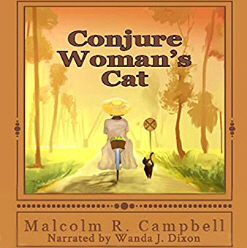 Earphones Winner from Audio File magazine.
Earphones Winner from Audio File magazine.Publisher: Thomas-Jacob Publishing
July 16, 2021
Blank sheets of paper made us happy for hours
Our father had tons of ditto and mimeographed sheets of paper that had been used on one side that he recyled, from the office and brought home to my two brothers and me.
When he was young, he invented and/or his father invented two used-paper games that were perfect for people with a lot of imagination. Both games began on multiple sheets with paper stapled or taped together so that they formed a large square or rectangle. When the played Colonies, we drew the outline of a large island on the resulting huge sheet of paper and then lined if off in a cross-hatch pattern on one-inch squares.
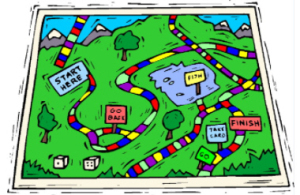 Crayons and colored pencils made our games works of art.
Crayons and colored pencils made our games works of art.
We took terns claiming squares which, of course, were our cologies. You had to claim each new square in a block that was continguous to a square you already had. Once territories began to develop, we added railroads, ports, towns, lakes, roads, mountains, and other features.
A stimilar game was called Town. Instead of drawing an island, we drew a crossroads in the center ot the giant sheet of taped-together paper. Those represented the Town’s major highways. Then we preceded to add smaller streets, schools, homes, factories, parks, offices and other features. Inevitably, each of us would use a section to present the bad part of town, filling it with narrow and wisted streets with bars, shady warehouses, and hotels that were obvously houses of ill repute. Whenever a section got too horrible, we’d do urban renewal projects which simply consisted of slapping a fresh sheet paper over a portion of the map and starting fresh. When my youngest brother became a city planner, he quickly saw that real urban renewal projects required laws, lawyers, forms, and a stacak of regulations.
In addition to those two games, we used our recyled paper to add extra streets to the Monopoly game. This provided us with new properties and higher profits as well as an exercise in what causes inflation since we had to keep creating more money to keep the bank solvent.
Oh, and we used to play outside in the dirt, too. Inside or outside, I think a few sheets of paper or a pile of sand in the yard taught us more about our imaginations than most of the games we could buy in a box.
–Malcolm
Malcolm R. Campbell
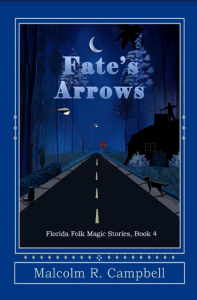 Publisher: Thomas-Jacob Publishing
Publisher: Thomas-Jacob Publishing
Nook or Kindle, harcover or paperback, you have multiple ways to enjoy this novel.
July 15, 2021
In Praise of Scouting
Frankly, I don’t know where so many scout leaders went wrong in order to lead the organization into disrepute. Will the organization survive? I hope to. In spite of the problems–which are attrocious–the BSA has, over time, done a lot of good. Not just wilderness skills, but a code of life based based on service, a moral life, and skills that have been applicable in multiple environments and situations.
 Our family was heavily involved from cub scouts to explorer scouts. My two brothers and I were eagle scouts as well as God and Country recipients. One was a member of the Order of the Arrow. My father as a pack leader and later an explorer post leader and my mother was a den mother. They were also involved at the council level.
Our family was heavily involved from cub scouts to explorer scouts. My two brothers and I were eagle scouts as well as God and Country recipients. One was a member of the Order of the Arrow. My father as a pack leader and later an explorer post leader and my mother was a den mother. They were also involved at the council level.
Our Tallahassee, Florida troop 101 was sponsored by the First Presbyterian Church. Then later, after I grew up, they dropped their sponsorhip and when I wrote to ask, nobody seemed to know why. What a shame.
Fellowship and working together toward common goals were always part of the mix. I feel we’ve lost the spirit of that has young people grow up glued to their cell phones rather than something that matters.
It’s not so much that you need to know how to survive in the wilderness, to tie a dozen knots, to make camp furniture out of scrub okay, practice first aid, and learn whet the world offers and what it will ask of you as you become and adult after applying yourself to the BSA ranks and merit badges. Will I ever need to know how to tie a timber hitch or a bowline? Perhaps not, but knowing how (should the need arise) is a large part of being self sufficient.
We knew how to identify what we found in the woods, whether it had beneficial uses or was harmful, and how to stand on our own two feet should danger arise. Sometimes I wonder if today’s youth are learning to survive or just to get by on a wing and a prayer.
Will Scouting itself survive? If so, I think it will have to change in a lot of ways, and I’m not just talking about all the injury suits brought by boys and their families against warped Scout masters. Yes, that must be part of it. But there’s more, I think, and a great part of that is learning to take responsibility for what you do and learning how to step in and lead others out of danger who, unlike Scouts, do not follow the “Be Prepared” motto.
The skills that have grown out of Scouting have been a life long part of growing up to be the kind of person you are glad to have become. We need more of this.
–Malcolm
Fate’s Arrows is available on Kindle and Nook, in paperback and hard cover, and an audiobook edition.
July 14, 2021
I probably shouldn’t show you this
My aunt, uncle, and father are all long gone, so my promise (to my late aunt) was that I would never tell my late father about my late uncle’s book. All this happened during the war when I was stationed briefly in San Francisco and had an apartment down a steep hill from my aunt’s apartment.
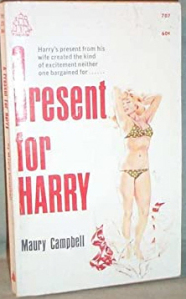 She said I want to show you something but you can never tell your father. That “something” was a paperback novel called A Present for Harry (1967) written my my father’s younger brother Maury. Maury didn’t want Dad to know about it because, well, the cover and the title made it look sexier than it was and, according to my aunt, Maury just didn’t think it would help family harmony for the existence of the book, worse yet, the book itself, to get back to Florida where my parents lived.
She said I want to show you something but you can never tell your father. That “something” was a paperback novel called A Present for Harry (1967) written my my father’s younger brother Maury. Maury didn’t want Dad to know about it because, well, the cover and the title made it look sexier than it was and, according to my aunt, Maury just didn’t think it would help family harmony for the existence of the book, worse yet, the book itself, to get back to Florida where my parents lived.
My aunt gave me an extra copy after I signed on a stack of Bibles that I wouldn’show it to my parents. I think my rounger brother also read it and might (like I do) still have a copy.
It was all hush hush. Presumably, Uncle Maury wrote it as a joke and was surprised when it got published. Frankly I think the story itself was a hoot as well as all the hush hush. My uncle had previously written a very popular nonfiction book called Pay Dirt! San Francisco. The Romance of a Great City. It was well reviewed and praised, and my Dad was very proud of the book as well.
Suffice it to say, a novel with a beach babe on the cover about a wife who givers her husband a beach babe as a present was, shall we say, and my uncle saw it, a fall from grace. As far as I know, my parents never found out about it. My aunt as a live and let live relative, strongly independent, and one of my favorite people. I called her one time during a San Francisco earthquake because there was rather large fire near her apartment. She said she didn’t know anything about it because their power was out and she couldn’t see the news. However, she said, “My building didn’t fall down, so not to worry.”
And, as the years went by, it turned out that more than one of us shared our hush hush secrets with her. But the statute of limitations on this book has run out (I think).
–Malcolm
This book is a bit gritty, so goodness only knows how my parents would have reacted to it had they still been around then it first came out. I would have told my aunt about it, though.
July 13, 2021
Staying just ahead of your characters
Teachers who are suddenly assigned to teach a course they’ve never taught before, often say that they use the course’s text book to stay just ahead of their students.
Writers often do the same thing. Let’s say my character hitches a ride and is let out next to a Florida swamp when the driver comes to a fork in the road and that’s the end of the ride. What does the character see? I don’t know. Well, I partly know because I grew up around Florida swamps. But that’s been a while. So, I get out a couple of my flora and sauna books about Florida and learn that the character can see. That includes things he can’t see that might hurt him.
So, I’m like the teacher, except in each case, I’m writing my way through locations and incidents that are new to me. In my novel in progress, a major character is at a livery stable, one owners by his two partners in a pack train operation. While I’ve ridden a fair amount, I’ve never run a pack train, much less had to know anything about the pack horse’s harness, how to load up, and what to expect a;pmh the trail.
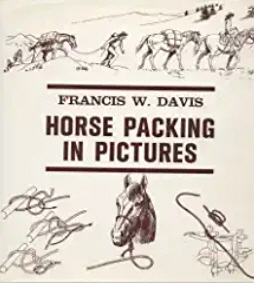 Pack trains are still used in National Parks and other wilderness areas. However, tracking down working packers seemed like it would be more time consuming than reading books and following up with Google searches to fill in the gaps. So, now you know why there’s a book pictured here.
Pack trains are still used in National Parks and other wilderness areas. However, tracking down working packers seemed like it would be more time consuming than reading books and following up with Google searches to fill in the gaps. So, now you know why there’s a book pictured here.
This book, like the earlier clasic by packer Joe Black, Horses, Hitches, and Rocky Trails: The Original Guide to Packing, Camping, and Getting Along with the Wilderness, has all the detail a neophyte needs to stay ahead of his characters. If the whole novel centered on a packtrain, I would interview people who run them after eading the books.
Both books are written by people who know horses, know tack, have plenty of packing experience, and can draw highly detailed and accurate illustrations. In reading these, I decided to change from mules to horses in the book since the books focus on horses and I’m more comforable staying within the authors’ specialties rather than trying to apply them to mules. Either one works in the novel.
Unlike people taking courses or receiving technical instruction in order to do a specific job, an author isn’t researching the subject in order to go out and do it. S/he just needs to be able to create an accurate representation of the work. Needless to say, this approach wouldn’t work if I were training student pilots and I’d never flown a plane. But for fiction writing, it works fine. And, like a reporter, I always try to find multiple sources. So, I can’t claim to be able to picket break a horse, but I can say I know (and my character knows) why you’d want to do it for horses on your pack train.
Research is always the aspect of the muse what stays with me throughout the writing to make sure I.m not writing without a figurative paracute.
–Malcolm
Malcolm R. Campbell
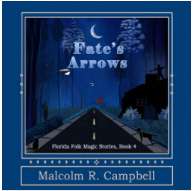 Publisher: Thomas-Jacob Publishing
Publisher: Thomas-Jacob Publishing
Experience the audio edition!

